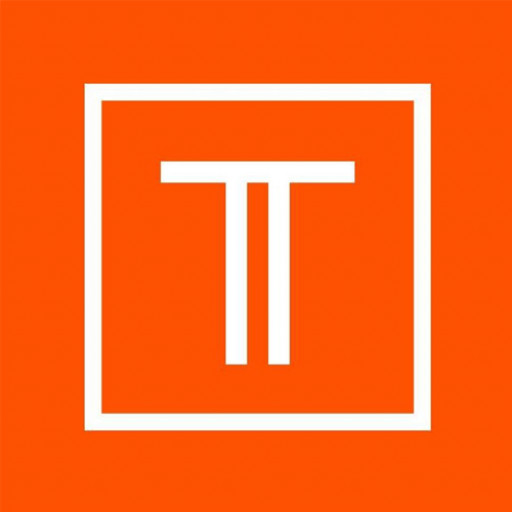This Bachelor of Games, Interactivity and Animation program at Swinburne University of Technology offers students a comprehensive education in the dynamic fields of digital entertainment, interactive media, and visual storytelling. Designed to equip students with both creative and technical skills, the program covers a wide range of disciplines including game design, 3D animation, interactive media development, digital arts, and storytelling techniques. Throughout the course, students will engage in hands-on projects that nurture their ability to create engaging games, immersive animations, and interactive experiences, preparing them for careers in the gaming industry, multimedia production, and digital entertainment sectors.
The curriculum emphasizes a blend of theoretical knowledge and practical skills, ensuring students understand the principles of design, animation, coding, and user experience. Students will explore topics such as 2D and 3D animation, computer graphics, user interface design, game mechanics, and programming languages relevant to interactive media development. The program also fosters creativity and innovation, encouraging students to experiment with new tools and emerging technologies such as virtual reality (VR), augmented reality (AR), and mobile media. Collaboration and teamwork are integral components of the learning process, mirroring real-world industry practices.
Students will benefit from state-of-the-art laboratories, industry-standard software, and opportunities to work on industry-driven projects. Additionally, the program offers pathways to industry placements and internships, providing valuable workplace experience and professional networking opportunities. Career prospects for graduates include roles such as game developer, animation artist, multimedia designer, interactive media producer, and digital content creator. The program is part of Swinburne's broader commitment to innovative digital education, ensuring graduates are equipped with the skills and knowledge needed to thrive in rapidly evolving digital industries. Whether students aim to bring their own creative ideas to life or contribute to the development of future entertainment technologies, this program provides a strong foundation to pursue their ambitions in the interactive digital world.
On completion of the qualification students may be qualified to become members of the subsequent industry and peak bodies, and should confirm their qualification with the institution: Screen Services Association of Victoria; Design Institute of Australia (DIA); Melbourne Art Directors Club (MADC); Australian Cinematographers Society (ACS); Screen Producers Association of Australia (SPA); Game Developers' Association of Australia (GDAA).
- Effective completion of the Victorian Certificate of Education (VCE) or its equivalent, including an interstate or global Year 12 qualification. Applicants without a formal eligibility might be considered for entrance upon completion of the STAT test. Course requirements - VCE Units 3 and 4 - a minimum study score of 25 in any English (except EAL) or even 30 in english-as Alternate Language (EAL) or equivalent. Extra performance criteria and prerequisite requirements can also apply. English language requirements - satisfactory completion of one of these following: Swinburne's English for Academic Purposes (EAP 5 Advanced level) with overall 65 percent, all skills 65%
- Minimum IELTS overall band of 6.0 (Academic Module) with no single band below 6.0
- TOEFL iBT (internet-based) minimum score of 75 with a reading ring a minimum of 18 and writing ring a minimum of 20
- Pearson (PTE) minimum score of 50 (no communicative skills significantly less than 50)
- Any other equivalent examination of English language proficiency. Note: A requirement for a lot of classes, the Pearson Test of English Academic (PTE Academic) can currently be done online campus in Hawthorn.
The Bachelor of Games, Interactivity and Animation program at Swinburne University of Technology offers several flexible and diverse financing options to support students throughout their studies. Students have the opportunity to access government-supported loans such as HECS-HELP, which allows eligible domestic students to defer their tuition fee payments until they are earning above the repayment threshold, making higher education more accessible and affordable. International students are required to pay tuition fees upfront or through official payment plans arranged with the university. Swinburne also provides various scholarship programs, including academic excellence scholarships, equity scholarships, and industry partnership scholarships, designed to reduce financial burdens and recognize outstanding student achievements. These scholarships may cover partial or full tuition fees and sometimes include stipends for living expenses.
Additionally, students can explore external funding sources, including government grants, bursaries, and sponsorships offered by private organizations and industry partners, particularly those related to the creative and digital industries. The university itself offers various payment plans that carter to students’ financial needs, enabling installments over the semester or year to spread out the cost of tuition. For domestic students, financial assistance programs may also include Centrelink support, further easing financial pressures.
Students are encouraged to plan their finances carefully and consult Swinburne’s financial aid office for personalized advice and up-to-date information on available financial assistance. The university's commitment is to ensure that financial barriers do not prevent talented students from pursuing their education in innovative fields like games, interactivity, and animation. Students are advised to investigate all available options early during their application process to maximize their financial planning and support.
The Bachelor of Games, Interactivity and Animation at Swinburne University of Technology offers students a comprehensive education designed to prepare them for careers in the rapidly evolving fields of game development, interactive media, and animation. This program combines theoretical knowledge with practical skills, enabling students to create engaging and innovative digital content across various platforms, including video games, mobile applications, virtual reality, and animation films. The curriculum emphasizes core areas such as game design, game programming, 3D modeling, animation techniques, interactive storytelling, digital media production, and user experience design. Students have opportunities to develop their creative abilities through hands-on projects, industry collaborations, and internships, which facilitate real-world experience and networking within the industry. The program also explores emerging technologies like augmented reality and immersive environments, allowing students to stay current with industry trends. Equipped with both technical expertise and creative problem-solving skills, graduates are well-positioned to enter roles such as game designer, animation artist, interactive media producer, or virtual reality developer. Swinburne's state-of-the-art facilities and industry partnerships provide a supportive environment for innovation and professional growth. The program aims to foster a strong understanding of the cultural, social, and ethical implications of digital media, ensuring graduates can contribute responsibly and creatively to the global digital landscape. The duration of the course is typically three years full-time, with options for part-time study, and includes opportunities for overseas study or exchanges to enhance multicultural understanding and industry relevance. Overall, the program prepares students for dynamic careers in the digital entertainment and media sectors, emphasizing both artistic excellence and technological proficiency.




